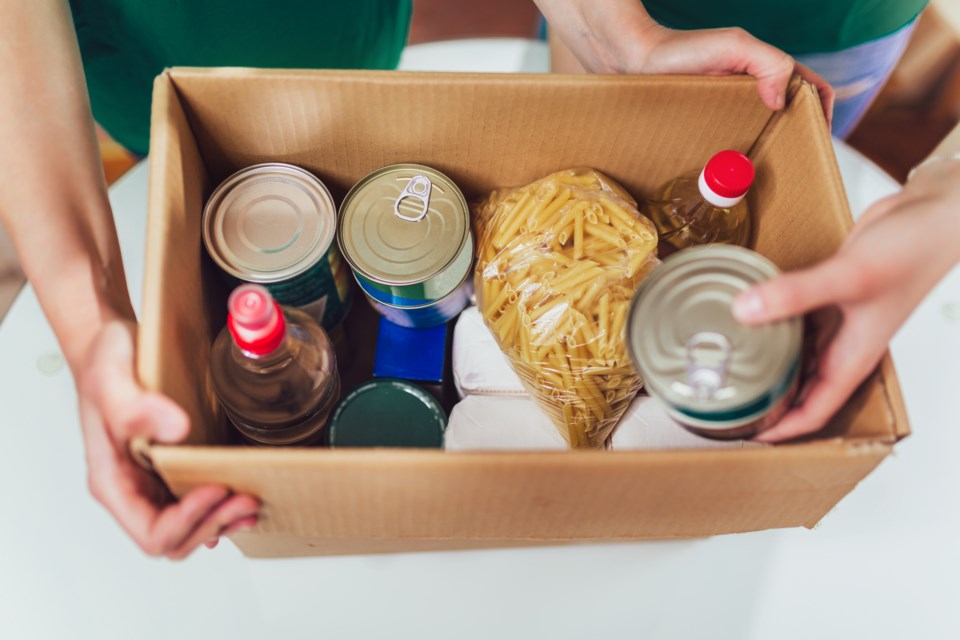One of the most encouraging and uplifting experiences to come out of this whole lockdown, pandemic, life-on-hold time in our lives is watching how our community has shifted its focus on ideas about food security.
It was pretty obvious early on that local government, social service support organizations and neighbours were going to need to step up in a way not seen before to make sure that people had enough to eat. After all, the resort has literally thousands of people out of work thanks to the pandemic, and the restrictions it has caused on business operations and so on.
And, while it is true there are pretty good government financial-aid programs, it is still a real challenge to pay rent, bills and eat. The support also needs to be available, and even delivered, in an inclusive way free from judgment.
It sounds simple enough, but on the ground, on the frontlines, it’s been a real challenge, and one that would not have been possible without the very good people at Whistler Community Services Society (WCSS) and the many local businesses and residents that have supported them.
So it was with a real feeling of heartache that I learned of the multiple racist incidents that frontline workers at WCSS have experienced in the past several weeks (Pique, May 6, “WCSS staff has been target of ‘multiple’ racist incidents, non-profit says”).
“At the root of dismantling covert racism is White discomfort, which is at an all-time high since many people have never had to think about racial issues at such depth or for this long before or examine their role in it,” local anti-racism and diversity consultant Anita Naidu told Pique last week.
“So the best thing those who are committed to fighting racism can do is be willing to get really uncomfortable, because no matter how progressive, educated and international a community deems itself to be, those insidious forms of racism will be difficult to upend until that discomfort is welcomed.”
Settle into that for a moment.
Jackie Dickinson, executive director of WCSS, made the point that in looking at these hurtful incidents we need to consider that racism and inequality need to be part of the same conversation as we search for solutions.
It’s easy to imagine that our picture-perfect resort is untouched by inequality, but that is simply untrue. The very fact that it is so expensive to live here breeds inequality as many people make financial sacrifices to call it their home.
One of the greatest assets we have, and one that is working hard to level the financial playing field, is the Whistler Housing Authority. Thousands are housed in affordable, quality living spaces thanks to this organization and with building continuing it is a lifeline for many, including families. (If you are not on the list to rent or purchase, what are you waiting for?)
But living is getting more and more expensive and wages are simply not keeping up for people who do not work in public or government services.
Consider that in recent years the Consumer Price Index (CPI) for B.C. has been about two per cent annually (it will likely be much higher this year), but not everyone gets a yearly equivalent wage increase, so your wages are actually going backwards. Added to this is the fact that the cost of staple goods like food, transportation, rent and utilities go up more than the CPI in many years, so it can feel for many people that they can’t get ahead.
This pandemic year has seen significant increases in the cost of food, for example, and it’s likely this will not be short-term. As with so many supply-and-demand commodities there have been, and continue to be, serious logjams in the supply chains. Many agricultural commodity prices have skyrocketed over the last year— corn is up 84 per cent, soybeans are up 72 per cent, sugar is up 59 per cent, wheat is up 19 per cent and coffee is up 13 per cent.
Food production in the U.S. also relies on a highly mobile army of labourers, whose low pay and crowded working conditions make them uniquely vulnerable to COVID-19, and this has wreaked havoc, said Phil Lempert, founder of SupermarketGuru.com. This will impact the importation of food to B.C.—about 78 per cent of produce eaten in B.C. is imported, mostly from the U.S.
In Canada, many food-processing plants have also been hit by coronavirus outbreaks impacting the supply chain.
A report late last year predicted that a family of four can expect to spend an extra $700 a year on food in 2021—that’s a five-per-cent increase, and we’re on track to meet the prediction by Canada’s Food Price Report.
About 3.8 million Canadians were food insecure before the pandemic, according to Statistics Canada. That number rose by about four per cent, to 5.3 million, by May 2020 and is expected to continue rising as the pandemic drags on.
It is easy to see how both those working and those out of work right now need help to put food on the table as this pandemic continues. Please give where you can with an open mind and remember to stand up against racism wherever it may raise its ugly head.




